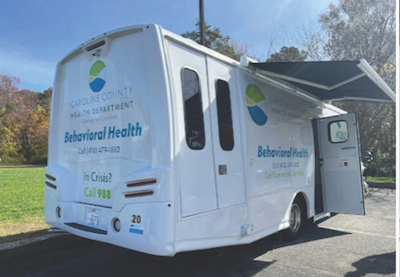Mobile clinics for substance use disorder
Mobile clinics can help people with substance use disorder who live in rural areas.

Opioids kill more than 96,000 people each year. There are not enough health care providers to treat people with opioid use disorder (OUD). This is especially true in rural areas.
In 2016, a care center in western Maryland lost their OUD provider. The center reached out to the University of Maryland (UMD) for help. UMD decided to use telehealth but faced challenges. They had to partner with departments of health. They also had to find money to buy equipment like vans and computers. The team received a grant from the Health Resources and Services Administration to assist.
The program works by parking a mobile clinic in a central location. A counselor, nurse, and peer recovery specialist help care for patients. Telehealth has been key to increasing access to OUD care.
"Telehealth has been key to increasing access to OUD care."
UMD has expanded its telehealth OUD program to emergency departments. Providers at small hospitals can use telehealth to get advice from specialists. This gives the person with OUD a “warm handoff” to a counselor.
“We feel like we are reaching people who wouldn’t have access to treatment.”
UMD’s program serves hundreds of people using telehealth. A psychiatrist said, “we feel like we are reaching people who wouldn’t have access to treatment.”
